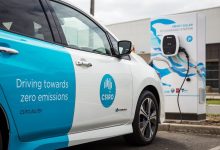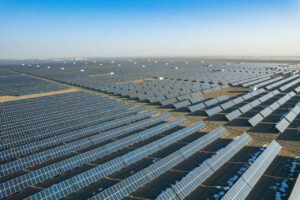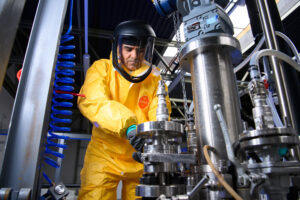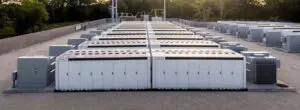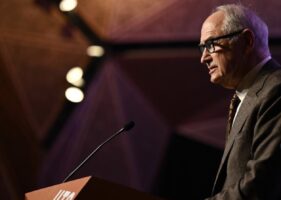CSIRO researchers are testing new electric vehicle charging technology that maximises the use of rooftop solar generation, and minimises demand from the grid, as they seek to head off the not-too-distant future challenge presented by mass EV charging at times of peak demand.
In a state government funded collaboration with Delta Electronics and Nissan Australia, three solar and battery backed EV charging modules – each capable of charging four electric vehicles – will be put to the test.
Delta Electronics developed the cabinets that combine a solar system with battery storage and EV charging, while the CSIRO focused on the module that integrates with solar and battery systems.
The charging systems, which have been installed at Nissan headquarters in Dandenong, will be trialed over 200 days, including the peak summer period, to evaluate off-grid EV charging with solar power and battery back-up. The cars used with Nissan Leaf EVs.
In a separate statement, Nissan Australia said key infrastructure had already been installed at the Dandenong site, including a 5kW solar system to power two charging units at the front of the head office, and another two charging units connected to a 10kW solar system at the rear of the property.
The technology incorporates a range of heat management strategies to ensure EV batteries are charged and discharged efficiently, even on the hottest days of summer – when demand for grid supplied electricity is often at its peak.
It also supports the charging of multiple vehicles in areas with limited access to grid power, where the charge rate would otherwise be limited. This includes the average home “garage,” where the CSIRO expects 90 per cent of EV charging is likely to take place.
The key goal of the technology is to recharge EVs as quickly as possible, using as much solar energy as possible, without the need to upgrade grid connection.
To read the full story on RenewEconomy’s electric vehicle dedicated site, The Driven, click here…

